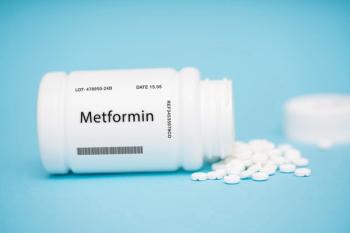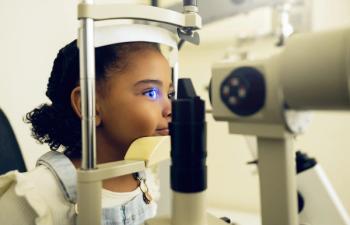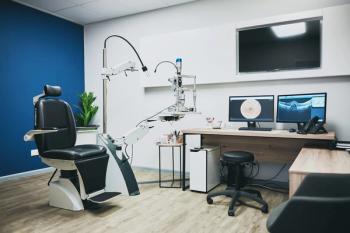
Steroids a double-edged sword
Corticosteroids are a valuable therapeutic modality in the management of a variety of ocular diseases, but their potential to cause serious adverse events make judicious prescribing critical.
Corticosteroids are a valuable therapeutic modality in the management of a variety of ocular diseases, but their potential to cause serious adverse events makes judicious prescribing critical, according to Bruce Onofrey, RPh, OD.
Proper diagnosis, selection of the appropriate steroid, and careful monitoring for adverse events are fundamental for staying on the benefit side of the equation, he added.
While steroids are appropriate treatment for many clinical scenarios, there are some instances in which they are relatively contraindicated. Some of the major uses for steroids are in the management of patients who have undergone cataract or laser refractive surgery and to control inflammation and prevent tissue damage in eyes with uveitis, ocular surface disease, certain infections, and allergy.
In laser refractive surgery patients, steroids are an important component in the medication regimen used after PRK as studies show their benefit for preventing corneal haze and regression of the refractive effect.
The major purpose for using a steroid in cataract surgery patients is to prevent the release of inflammatory mediators that can lead to the development of cystoid macular edema (CME). This is particularly important in diabetics who are more prone to develop postoperative CME and who may require a longer duration of treatment.
Management of non-granulomatous anterior uveitis is another common use of steroids. Efficacy requires aggressive treatment with frequent dosing and a long enough duration, followed by a slow taper.
"Initially, topical steroid treatment for anterior uveitis may require hourly instillation. As the inflammation is controlled, the tapering period can last up to 1 month," Dr. Onofrey said.
Managing inflammation in OSD
For the management of ocular surface disease, steroids help reduce inflammation that causes ocular surface and lacrimal gland damage. However, they should only be used short-term for 2 to 4 weeks.
"Topical cyclosporine (Restasis, Allergan) is the drug of choice for maintenance anti-inflammatory therapy in inflammatory dry eye disease. However, a steroid can be used in a pulse or intermittent regimen as needed as long as the patient is carefully monitored for side effects, including IOP elevation and secondary infection, particularly herpetic infection," he said.
Steroids may also be beneficial in the management of inflammatory blepharitis, but again, you must be careful that patients do not continue the treatment long-term.
"Better options for managing inflammatory blepharitis include good lid hygiene, omega-3 fatty acid supplementation, and if necessary, low-dose oral doxycycline," he said.
Indications for infections
Infections in which steroids are indicated include adenoviral epidemic keratoconjunctivitis. In this condition, steroids are indicated for treating pseudomembranes and for preventing the development of corneal opacification and ocular surface disease arising from inflammatory damage to the lacrimal glands.
Steroids also have a critical role in treating herpes zoster ophthalmicus and for managing keratitis associated with herpes simplex virus infection.
"However, steroids must be avoided in suspected cases of epithelial herpetic disease or where fungal keratitis is a possibility," Dr. Onofrey said.
Newsletter
Want more insights like this? Subscribe to Optometry Times and get clinical pearls and practice tips delivered straight to your inbox.





























